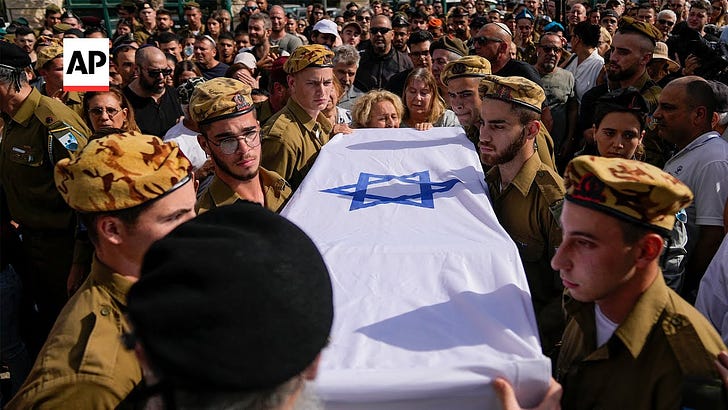At Israel’s 'Quiet' Border with Egypt, Calamity Strikes
What went wrong early on Saturday morning?
Early in the morning of Saturday, June 3, an Egyptian policeman managed to infiltrate the border between the Sinai Peninsula and Israel and to kill three Israeli soldiers, before meeting his own death in a firefight with Israeli forces.
For Israelis tuning into the news that evening, after the Sabbath, it was a jarring incident. While 2023 has seen deadly terror attacks in Judea-Samaria and Jerusalem, along with a mini-war with Islamic Jihad in Gaza, the Israeli-Egyptian border is usually quiet and out of the limelight.
Not only have the two countries been formally at peace for more than four decades, but in the ongoing battle against the Islamic State in Sinai—which also stays out of the headlines despite the ferocity of the fighting—Egypt and Israel are on the same side. More than 3,000 Egyptian soldiers have been killed in the fighting since 2013, and as a veteran Israeli commentator notes, “it is no secret that Israeli planes and helicopters are often seen in the skies of Sinai, with the knowledge and approval of the Egyptians.”
That year, 2013, also saw Israel’s completion of a fence along the Sinai border, aimed at keeping out not only terrorists but also drug smugglers and illegal migrants, that has proved highly effective. The long border from the southern tip of Gaza down to the Israeli port city of Eilat is guarded mainly by light-infantry brigades, in contrast to the elite forces that battle terror cells almost nightly in Judea-Samaria.
Then what went wrong early on Saturday morning?
The picture now emerging concerns a 22-year-old Egyptian from Cairo named Mohamed Salah Ibrahim who “was drafted into the Egyptian army in June 2022 and stationed on the Israeli border as a policeman.” He was reportedly suffering “mental distress following the death of a comrade” and at one point “had gone absent without leave for 18 days.”
The “comrade” in question may have been killed in the May 2021 warfare between Israel and Hamas in Gaza. After Ibrahim’s death on Saturday in the shootout with Israeli soldiers, he “was found to be carrying two combat knives—which he had used to breach the barrier—as well as food, a Quran, and six magazines for his assault rifle, indicating he had planned a larger attack.”
And indicating, as well, that revenge may have been a motive, and that Ibrahim may have been undergoing an Islamization process—or in any case harbored hostility to the Jewish state.
Despite major security and economic ties between Israel and Egypt, such hostility to Israel—even 50 years after the two countries last fought a war and 44 years since they signed a peace treaty—runs deep in the Egyptian population, and it was evident in the reaction to Saturday’s events.
The Egyptian Army described Ibrahim as a “police officer who was chasing drug smugglers,” said that “during the chase, the security man was involved in an exchange of fire that caused the deaths of three Israeli soldiers,” and sent condolences “to the victims on both sides”—though the “sides” were a rogue aggressor and soldiers defending their country. Ibrahim is also “being portrayed as a hero on [Egyptian] social networks”—and, as noted by a Monday-evening news broadcast in Israel, on Palestinian social networks as well.
Things are somewhat better on the official level. The Israeli Army says the Egyptian Army is fully cooperating in a joint investigation. The two countries’ defense ministers “agreed to continue the direct relationship between them, to prevent terrorist incidents in the future and to strengthen the relationship between the countries.”
The three Israeli casualties were Staff Sgt. Ori Yitzhak Iluz, 20, Staff Sgt. Ohad Dahan, 20, and Sgt. Lia Ben Nun, 19. Iluz and Ben Nun were serving jointly in the mixed-gender light-infantry Bardalas battalion. As is the practice here, the funerals were televised nationally. Israelis know that they live in a rough region; they pick up the pieces and, with tremendous resilience, move on.




